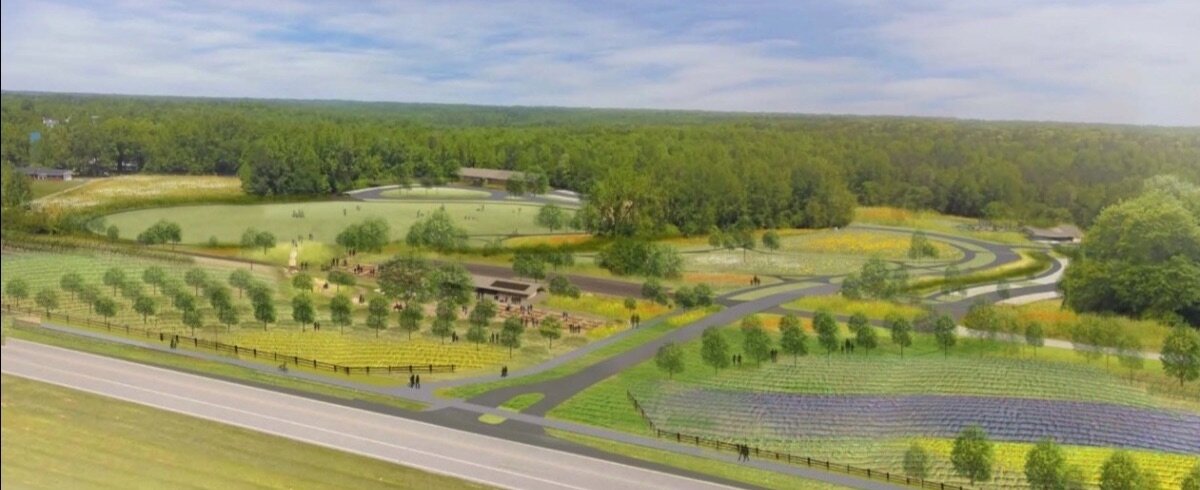Food production is a natural fit into parks and recreation programming: diverse agriculture fosters healthy and active communities, and provides countless sustainability and education opportunities. However, it’s not as common as it could be.
Imagine a fall day strolling through your favorite park - between ballfields, past the playground. You walk up to a tree, pick a ripe persimmon, and take a bite as you continue on your journey. You look over at a tidy field, wave hi, and ask the farmer they'll bring those fall veggies to the farmers market on Saturday. Next week there’s a home gardening workshop, and you’re hoping to join the community garden in the spring. Through the year you find new connections and activities, foods you hadn’t seen before, and a deeper understanding of our world.
Public agriculture - farms, gardens, orchards, and more - is often overlooked in park planning. It’s not a focus of very many parks departments.
Luckily, as designers and local food advocates, we’ve been helping expand this new direction in planning, working to make edible parks a reality in Wake County! Over the winter, we’ve had a great time working with Wake County Parks, Recreation, and Open Space on agricultural programs for two new parks projects: Kellam-Wyatt Farm and Beech Bluff County Park.
Both parks emphasize ecological restoration and education, making regenerative agriculture and its focus on soil health, resilience, and learning from Indigenous practice a fantastic addition to their programming. We’re so excited to have planning teams that support this work!
Last year we joined forces with Design Workshop to start an exciting master planning process for the Kellam-Wyatt Farm, between Raleigh and Knightdale. We are looking forward to continuing our role as food system and agricultural consultant as the process moves ahead.
Beech Bluff County Park, in southeast Wake County, is looking to a 2023 opening date, with the schematic design by Surface 678 recently approved by the Wake Board of Commissioners. We've helped develop Beech Bluff's five acres of agriculture space, which will include a community garden, demonstration garden, community orchard, bee hives, and rotating crops for production and soil regeneration. Located right at the park entrance, agriculture is front and center, connecting to the site’s history and inviting visitors to interact with food production.
Render of Beech Bluff County Park entrance & agriculture fields. Many thanks to the Surface 678 team for their image!
Public agriculture is a key part of a diverse, resilient food system, and can take many forms. Community gardens, when driven by communities, can serve as “place-keepers,” that empower neighborhoods and resist gentrification. Public parks can partner with private farmers to conserve farmland and provide opportunities for small farmers. Even in small public spaces, urban food forests and edible landscaping can fight food insecurity with open, free food.
See why we’re so excited about edible parks? Find your nearest park with food production - or see if you can get something started. If you’re near Wake County, check out Oak View County Park or Cary’s Good Hope Farm and get excited for Beech Bluff and Kellam-Wyatt. And thank your County leaders for making it happen!
Then start to consider: where else can we find opportunities to put food in everyday spaces?
+ Read our full newsletter: https://mailchi.mp/6e9e522667f0/winter-2021-newsletter-lets-get-agriculture-in-parks.

